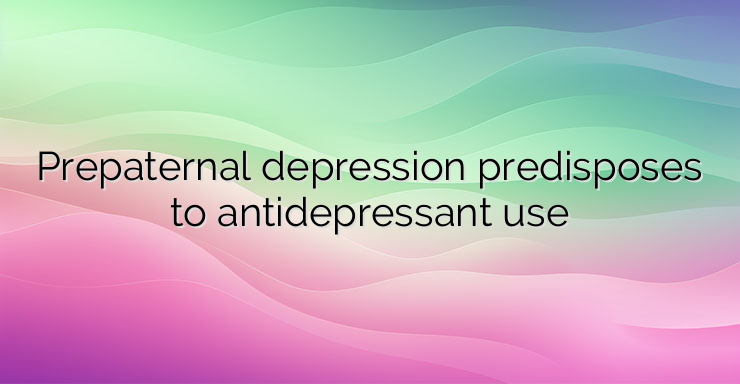Having a child leads to becoming a parent, and this experience initially brings a range of intense emotions for both mother and father. These strong emotions can quickly lead to mental overload and fatigue. Such intense overload can affect those who suffered from mental illness before becoming parents much more severely. It found that in fathers who had previous experiences with depression and were taking antidepressants, fatherhood could reinstate the need to take these medications again. A scientific study looked at data from over 500,000 male volunteers. It says that if a man took antidepressants before becoming a father, he is 30 times more likely to start taking such drugs again during fatherhood, compared to fathers who did not take such drugs before him. Although previous use of antidepressants is not necessarily a factor in subsequent use, it strongly influences the likelihood of taking these medications. This statistic can be explained by the nature of the father’s life after the birth of his child. The greatest priority for a father after the birth of his child is the health of the child, as well as the health of the mother who has gone through the long, difficult process of pregnancy and childbirth. The father becomes an important support for these two family members and he provides stability and care in those months after the birth. Absorbing this responsibility takes a lot of effort and is a constant stress, and fathers can forget to take care of their own health, which in turn leads to an accumulation of stress and fatigue. The combination of work, caring for the family and lack of other social contact can lead to the return of depressive symptoms in fathers who previously suffered from this responsibility. The study shows that 1 in 10 fathers face depression within 1 year after the birth of a child. Antidepressants are one of the most popular methods of treating depression. But their intake carries risks, because the medications are very different in composition and especially according to their effect on the human body – one antidepressant can act differently in two separate cases. The risk that antidepressants carry is expressed in a wide variety of side effects that range from a lack (or, conversely, a significant increase) of appetite and decreased libido to increased anxiety and dizziness. Taking the wrong antidepressant may not improve the depressive state, but worsen it, so it is recommended that along with taking medication, patients should use the opportunity (if they have one) to spend time on therapy and not neglect their own health overall. References: Anderer, J. (2023, October 15) Men with antidepressant history 30 times more likely to use them again after having kids. Retrieved 2023, October 17 from https://studyfinds.org/men-antidepressants-having-kids/ Schartau, P.(2023, May 31) Association of Recent Fatherhood With Antidepressant Treatment Initiation Among Men in the United Kingdom. Retrieved 2023, October 17 from https://jamanetwork.com/journals/jamanetworkopen/fullarticle/2805443


Leave a Reply